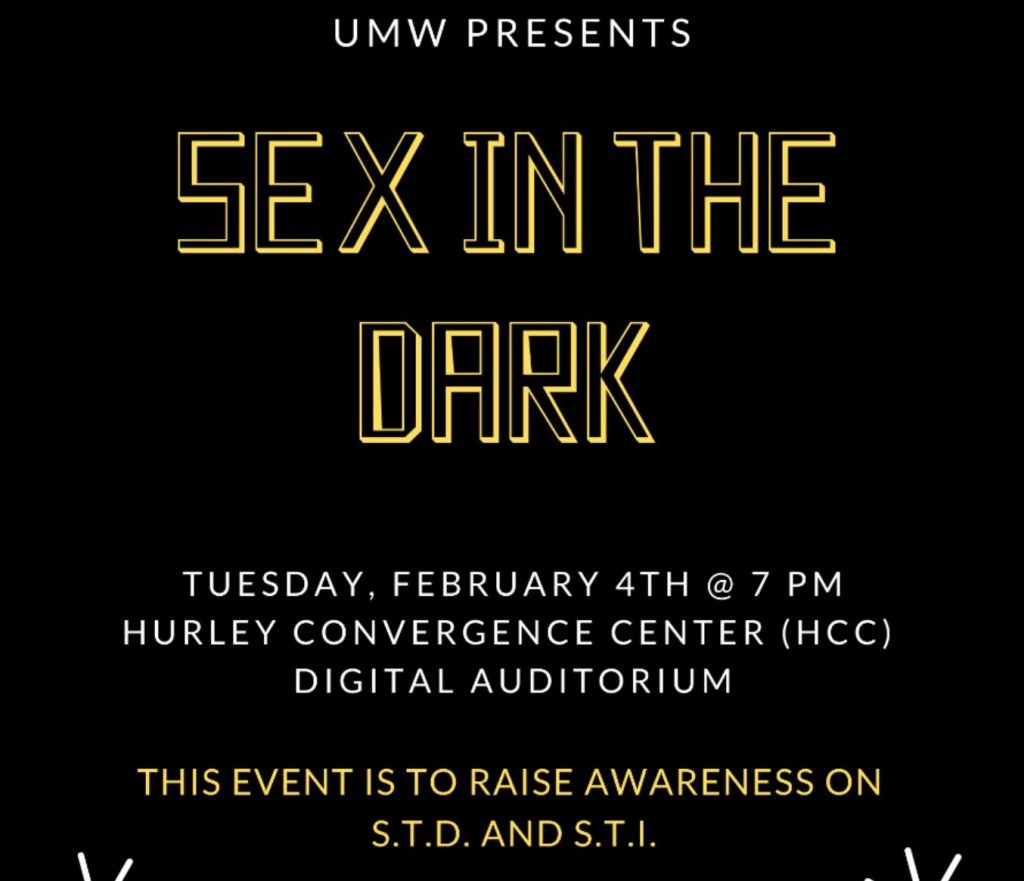Sex in the Dark event educates students about safe sex
4 min read
The Sex in the Dark event was put on by Residence Life to raise awareness about sexual health. | (SAE Weekly)
by ALEXANDRA LEWIS
Staff Writer
Residence Life staff hosted an event called ‘Sex in the Dark’ in the HCC Digital Auditorium on Feb. 4. The event was designed to educate students about sexually transmitted infections and diseases, as well as healthy sexual practices.
“I was inspired to throw this event after I noticed the lack of education on campus regarding protective and safe sex. Back in November, I attended an RA conference (VACUHO) and a Norfolk State RA put on this event for her residents,” said senior resident assistant Sydne Coleman, a senior psychology major. “However since our campus is so small and I only have about 16 residents, I decided to make it into a campus-wide event. The goal of the event was to expand upon the red flag and consent education done by the Title IX office.”
The turnout for the event was close to 60 people.
Upon entry, the RAs handed each participant a glow stick, piece of paper with an STD or STI printed on it and either an index card or QR code linked to a Google form for participants to post questions anonymously. Once everyone was settled they asked the audience to come to the front and talk to each other for a mingling game. After a few minutes, everyone was asked to crack their glowstick if someone they talked to had a paper with an STD or STI, which nearly everyone did. The object of this game was to show how quickly these diseases and infections can spread through interactions with others.
After this the audience split into smaller groups to play Kahoot, in which the questions dealt with various topics of sexual health.
Michael Tucker, a freshman business administration major, said, “It was very informative. I just realized how blind I was to all the diseases; all I knew about was STDs like herpes, but I didn’t know about everything else.”
After the games concluded, the RAs had set up a panel for the audience to ask questions. The panel consisted of Aide Sanchez, a prevention specialist with Fredericksburg Area HIV/AIDS Support Services (FAHASS), Chris Eaglin, former UMW student and current outreach education coordinator with FAHASS, Dr. Nancy Wang, UMW Physician and Student Health Center Director, and Eve Kagan, sexual assault specialist and staff counselor for the Talley Center at UMW.
“Sexual health is an essential component of overall wellness,” Kagan said. “I thought this panel would provide students the opportunity to ask challenging and difficult questions about sex. As a counselor, I want to take part in events that create a safe environment to delve into meaningful, and sometimes uncomfortable, topics like sexual health.”
One of the anonymous questions dealt with what symptoms to be on the lookout for, which lead to a discussion about how a lot of symptoms aren’t obvious. The extremes shown to students in high school are a small percentage, and symptoms can be similar to a urinary tract infection, mono, the flu and a persistent yeast infection. As a result, the members of the panel stressed the importance of being tested regularly.
FAHASS representatives explained that they are on campus every first and third Friday providing low cost or free testing, and the UMW Health Center offers one free STI test a year for students which can be performed anytime throughout the school year. The Health Center will also provide treatments for STIs and practices strong doctor-patient confidentiality.
Cameron Coates, a senior communications major, said, “I know now if I’m ever in a predicament where I do catch an STD I know how to get tested and the resources across campus that can help with that.”
“As we received questions there were many things that we felt like students in college should have already known for safety and health reasons, and that just shows that there is not enough discussion around this topic,” said White.
“I thought it was very informative, especially when it came to the Q&A because I feel like a lot of people, including myself, don’t know how testing for these diseases work and how easily it is to spread to one another,” said Coates.
There were numerous questions on fear – about telling a partner, seeking medical help and taking the initial step to get tested. The panel explained that there is courage and bravery in simply showing up. The Talley Center can help students work through how to have those difficult conversations with others and themselves.
“My hope is that participants gained a greater understanding of STI/STDs and how to practice safe sex. As the awesome button I received at the event says, ‘Safe Sex Is Great Sex,’” said Kagan.


